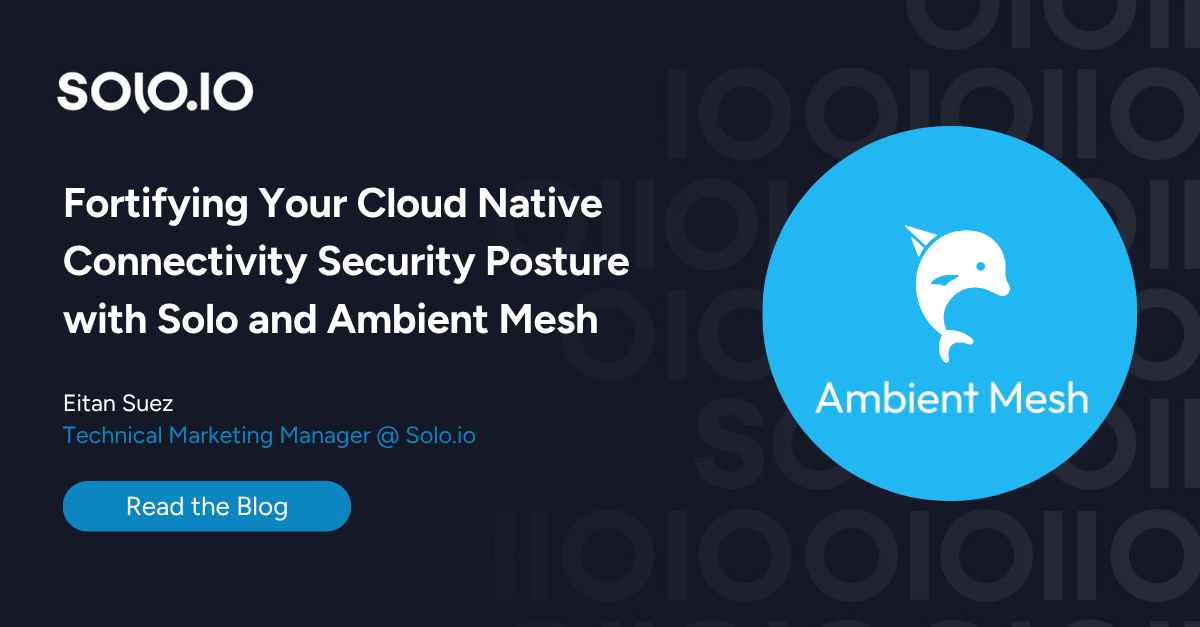Last week we hosted a webinar with our field CTO Christian Posta and Jason Hansen, program manager from Microsoft to talk about the Service Mesh Interface Specification and Solo’s Service Mesh Hub to simplify the installation and operation of any service mesh.
Here are some highlights of the Q&A:
As an end user, how can I use the SMI? Is it something I use directly?
There are always two pieces to SMI. First is the set of APIs that allow you to describe how your application traffic policies should be applied or traffic routed or how you’d like to pull metrics. The service mesh is not provided by SMI. The focus is to make a common set of APIs that are easy to use and work well with Istio, Linkerd, Consul and any other service mesh that becomes available.
How do Service Mesh Extensions work?
Extensions are a set of capabilities that orchestrate the service mesh. These can be capabilities from a 3rd party software vendor or capabilities built by your internal engineering teams specific to your environment. For example, things like traffic shifting and canary releases are not built into Istio service mesh but are provided from other software vendors. What Istio does do is provide telemetry for you to make decisions on how traffic should be shifted.
I am not allowed to expose my services externally, can I still use Service Mesh Hub?
What you see on https://servicemeshhub.io is a read only website. The Hub is easily installed onto any Kubernetes cluster on-prem, in your VPC or anywhere you choose. This means that the discovery of existing service mesh clusters are happening within your networks and you don’t have to expose your clusters publicly to bring them under management with the Hub.
To install the Service Mesh Hub on your cluster
Install the service mesh hub by running the following command:
This will install the hub into the `sm-marketplace` namespace. Once the pods are running, you can open the hub by port forwarding:
And navigating to the following in your browser:
We hope you enjoyed this webinar and check the schedule for an upcoming webinar or meet us at an upcoming event. If you’d like to stay informed, sign up for our newsletter or join the community to start a discussion.
Learn More:
- Browse and Try the Service Mesh Hub
- Contribute an Extension
- Learn more about the SMI Spec



















%20For%20More%20Dependable%20Humans.png)










